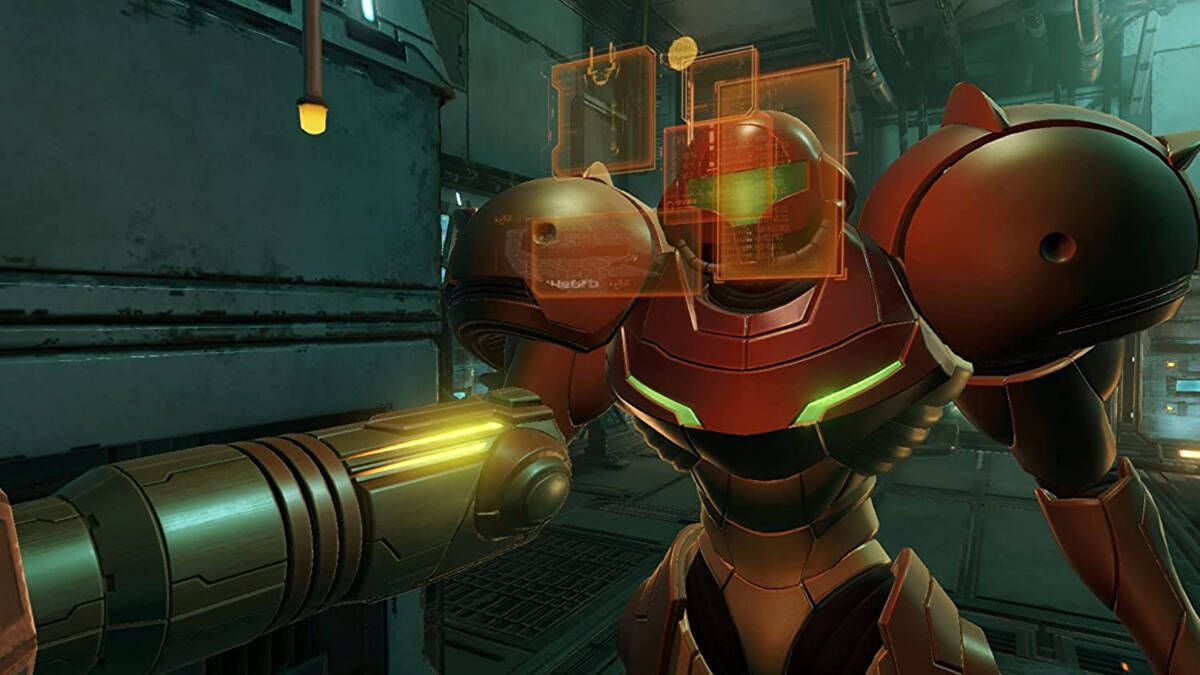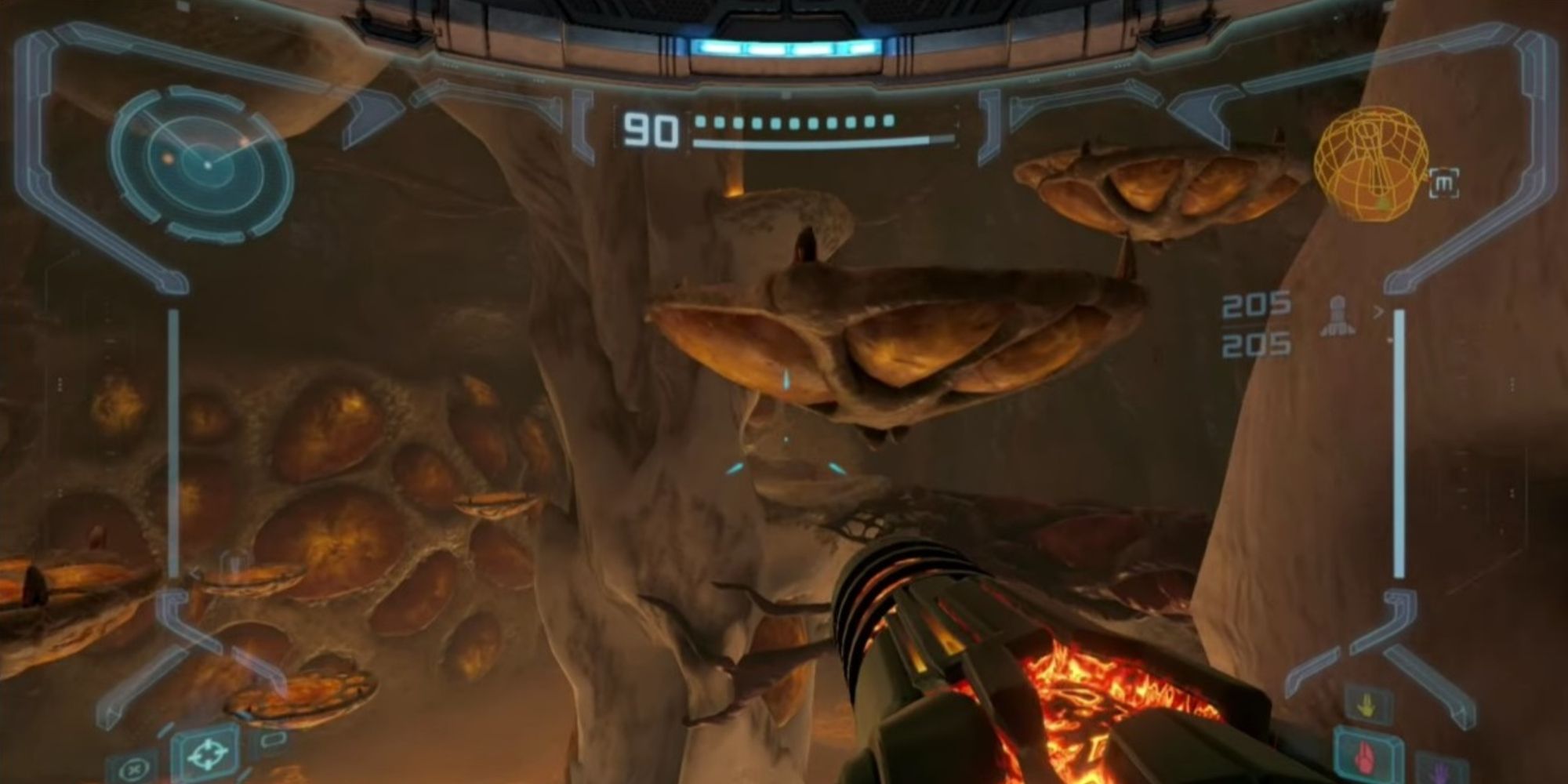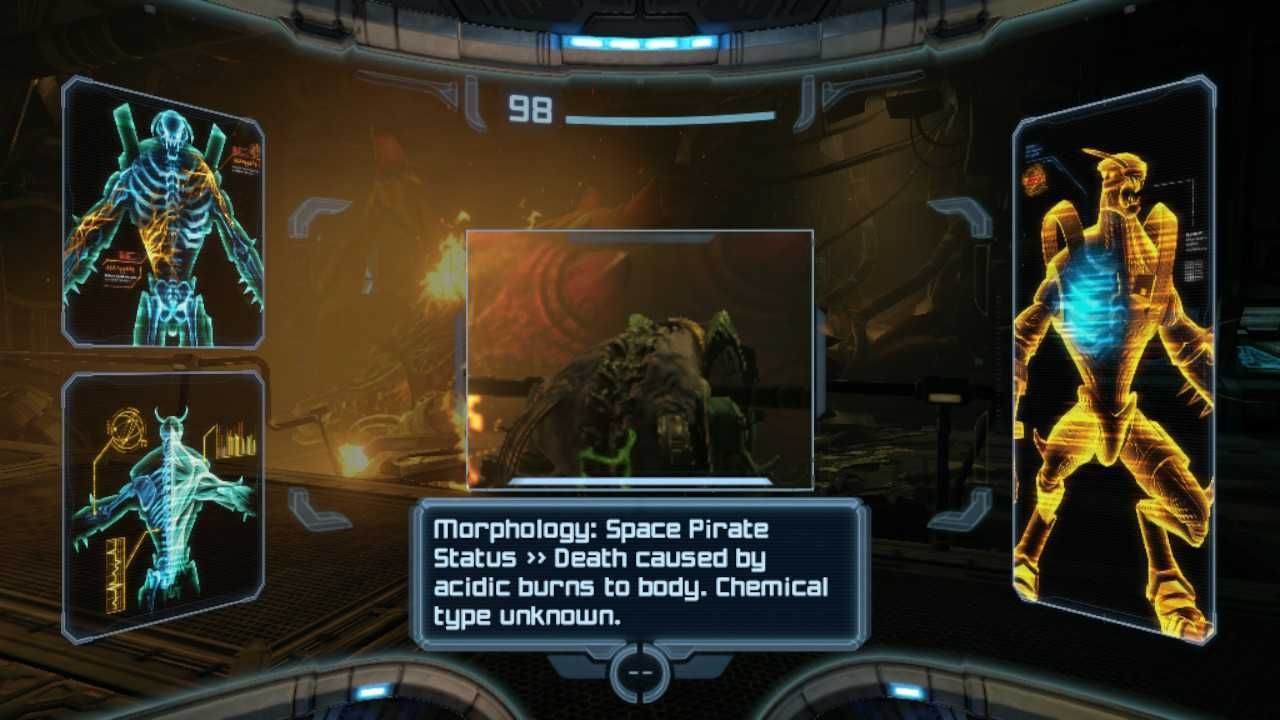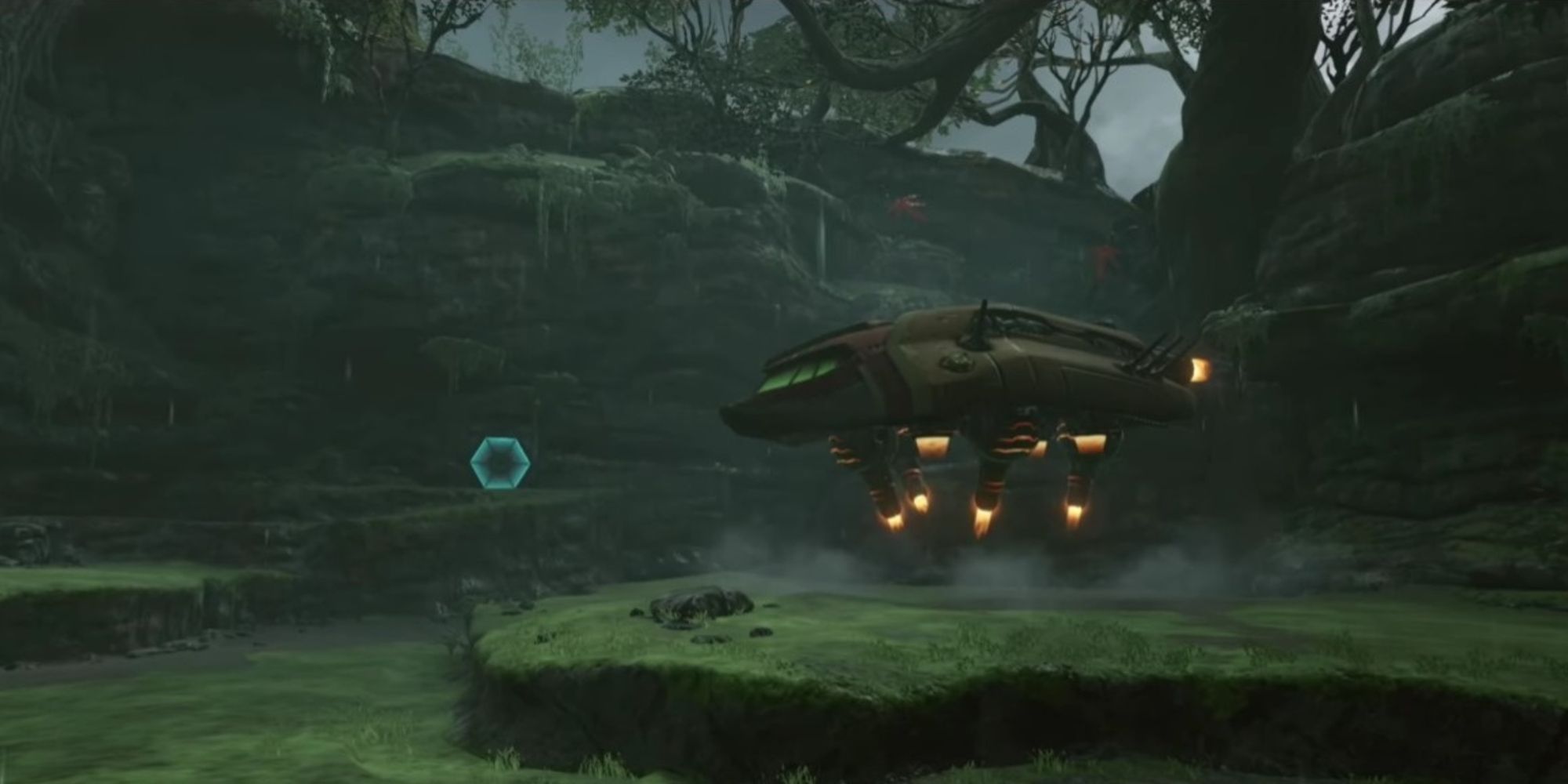Metroid Prime Remastered is timeless, so much so that I can’t believe this game came out over twenty years ago. It is shockingly modern in its design tenets and how it presents a sprawling world for us to explore without ever once holding our hands. Tutorials explain the basic mechanics and a hint system makes getting lost a little less common, but nearly every upgrade is followed by Retro Studios telling us to suck it up and find our own way.
No quest markers, no omnipresent protagonist dialogue, and no objectives in the menu to provide any context of where your adventure must go next. Like older games in the series, Prime trusts its audience, understanding they have the intelligence to look back on previous actions to figure out what blocked areas they might now have access to or obvious hints that were easy to overlook at first glance.
Most of the time this boils down to a lava-filled cavern no longer capable of burning you alive or a cracked wall now susceptible to explosives. Little nuggets of progress that compliment new abilities and your familiarity with the open world.
While the breadcrumb trail of discovery that defines much of the game’s freeform exploration is stellar, my real love for Metroid Prime can be found in its overriding loneliness. Aside from a sliver of opening narration and the repetitive droll of your scan visor, this is a game with no dialogue and characters only formed through cryptic database entries and forgotten relics on the planet’s surface. Each new splinter helping piece together exactly what brought this place to eventual ruin. Nintendo had never done anything like this before, or since, at least with the same level of excellence.
I’ve spent more time on Tallon IV with my scanner equipped than my plasma cannon, curious to learn more about the creatures that call this place home instead of killing them. A hostile reaction is sometimes necessary, but your time is always respected. Enemies respawn whenever you leave or enter an area meaning that foolish mistakes can be rectified in moments, putting the act of learning about this world far above destroying it.
Each new biome can be seen as a traditional level with archetypal element properties – fire, snow, sand, grass, and underground labs representing an alien planet that most other games would depict as a segmented mess of discordant stages, but Metroid Prime is much more than that.
Regardless of where Samus Aran finds herself, the scan of a nearby monitor or lingering piece of fauna is positioned to teach us something. Small passages of text used in place of spoken dialogue lined with clumsy exposition to leave us with questions to be answered, yet just enough knowledge to keep us going.
I’m hesitant to call Metroid Prime a survival horror game, but it shares many of the same tenets. The opening section aboard the abandoned pirate frigate is designed to make us feel anxious, uncomfortably sifting through the burning wreckage and decaying corpses of aliens who will soon become our adversaries. Samus is yet to lose any of her powers, so we’re untouchable, yet without the information needed to use these skills and defend ourselves means we might as well be wearing nothing at all. Stupid Sexy Samus.
There’s a palpable sense of dread to the falling dominoes, a slow realisation that whoever we came here to save is already dead, and now our only mission is to figure out what happened and to salvage whatever we can. This place is lost, and an entire game centred on the aftermath of devastation is equal parts brave and liberating. You can picture what this planet used to be like, and conversations that took place as these text logs were first pieced together. Aside from the background music and diegetic musings of the planet surface, we are completely and utterly alone.
Maybe I’m a weird little gamer who embraces the loneliness of a game like this, far preferring the act of discovery on my own terms without overzealous dialogue and quest markers. Metroid Prime can be pretty old-fashioned in its game design at times, and you’ll likely be hitting your head against the wall in pursuit of where to go next, but this reinforces everything I just mentioned.
You’re a lost soul finding purpose in a world that has left behind a culture doomed to be misunderstood, and even now it feels like my mind is trying to connect distant dots that could easily lead nowhere. The lonely atmosphere is enough to keep me going though, spurted onward thanks to music and mystery that after four hours with the game I have long fallen in love with. With the success of the remaster I hope shooters like this are able to make a comeback. Or just remaster the rest of the trilogy before the fourth comes around.
Source: Read Full Article



